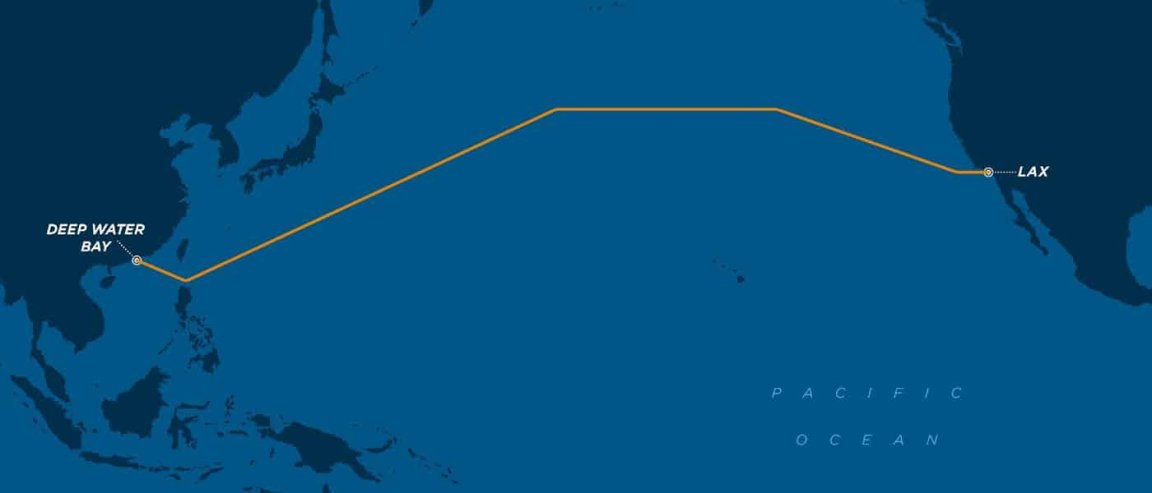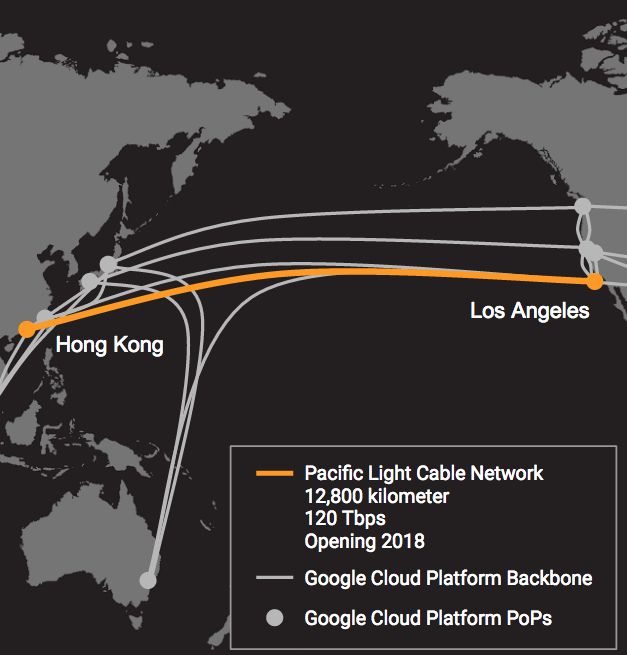
Faster Connections
Large tech companies are increasingly spreading internet connectivity on their own, bypassing traditional telcos. In fact, the methods these companies are looking at are often out-of-the-box, using drones or high-altitude balloons to deliver internet connections.
But with all this, it’s easy to forget that these companies are also investing a lot into “traditional” internet infrastructure. Facebook and Google, for example, just announced they are working on a massive undersea fiber-optic cable that will connect Hong Kong and L.A.
The two tech companies are partnering with Pacific Light Data Communication and TE SubCom to build the Pacific Light Cable Network (PLCN), a 12,800 km (7,954 mi) transpacific submarine cable system. That makes it one of the longest US to Asia undersea cables.

It will also be the highest-capacity trans-Pacific route, with a capacity of up to 120 terabits-per-second. That beats the previous record-holder, FASTER, which is also a Google-backed system.
According to Google, that capacity is enough to allow Hong Kong to have 80 million concurrent HD video conference calls with Los Angeles. The system is expected to be operational by 2018.
Better for Everyone
These moves highlight the fact that internet companies are becoming more and more independent, relying on their own systems instead of telcos’ networks. In fact, Facebook, Google, Microsoft, all are laying their own cables.
Facebook and Microsoft have been building a 4,100 mi (6,598 km) cable connecting Virginia to Spain, one even faster than PLCN. This undersea cable project is the sixth such system Google has launched.
But why should we care? For starters, this means that using Google or Facebook is going to get a wee bit faster, especially for US and Asian users. But more than this, tech giants are actually making the internet faster for everyone else. They’re giving data new routes to travel through, and allowing others to piggyback off their own systems.